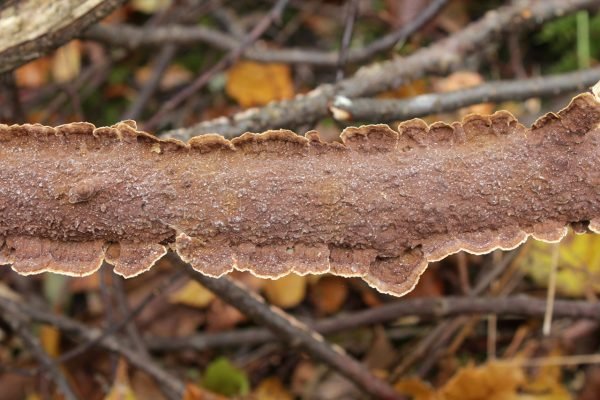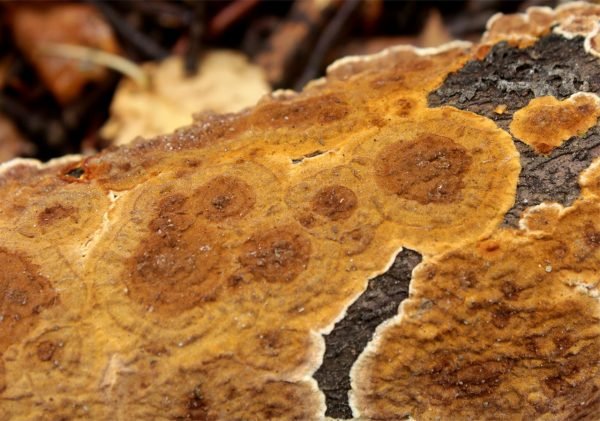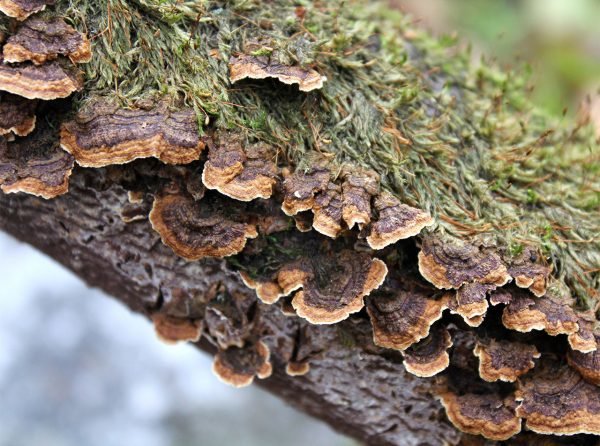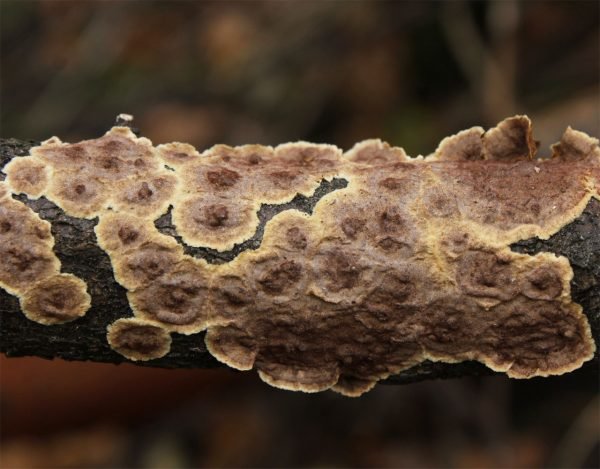Pseudochaete tobacco-brown (Pseudochaete tabacina)
- Division: Basidiomycota (Basidiomycetes)
- Type: Pseudochaete tabacina (Pseudochaete tobacco-brown)
- Auricularia tabacina
- Thelephora tabacina
- Hymenochaete tabacina

Description
Fruiting bodies are annual, small, very thin (like a sheet of paper), bent or prostrate. Prostrate specimens often merge with each other, forming a continuous “mat” along the entire length of the branch on its underside. The bent ones can be located in tiled groups or form a scalloped “frill” along the edge of the extended group.

The upper side is rough, rough, without pubescence, with concentric stripes in rusty-brown and yellow-brown tones. The edge is thin, during the period of active growth is light, whitish or brownish-yellow.
The underside is smooth, matte, yellowish closer to the edges, in the middle (and with age already completely) tobacco-brown, with a slightly pronounced concentric relief, in the middle there may be a small tubercle.

the cloth
Reminds the consistency of felt, dark brown.
Ecology and distribution
Widespread species. It grows on dead dead and dead wood of deciduous species (alder, aspen, hazel, bird cherry and others). An interesting feature of this species is that it is able to spread along adjoining branches, forming a thick “bridge” of mycelium at the point of contact. Causes white rot.

Related species
Rusty-red Hymenochaete (Hymenochaete rubiginosa) is confined mainly to oaks and is distinguished by slightly larger hats.









